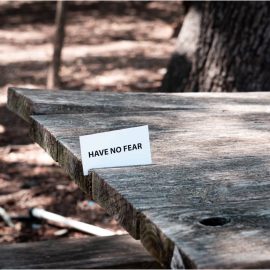

This article is an excerpt from the Shortform book guide to "Being Mortal" by Atul Gawande. Shortform has the world's best summaries and analyses of books you should be reading.
Like this article? Sign up for a free trial here.
Why is death such a taboo topic? How does talking about dying help us make peace with our mortality?
According to Atul Gawande, we can greatly improve our experience of mortality by talking about death more openly. We tend to avoid these conversations, but that leaves us ill-prepared to deal with the challenges aging and dying present.
Here’s why we shouldn’t shy away from talking about death, according to Atul Gawande.
Why We Should Talk About Death More Openly
The dying experience powerful emotions we must acknowledge to reduce some of the fear and uncertainty that surrounds death. For instance, the dying often fear the process of decline—the pain, memory loss, or the suffering their loved ones endure. These fears are often mixed with powerful hopes, as well—hope for a cure, for comfort, for the ability to stay lucid.
According to Gawande, such concerns should be acknowledged and discussed openly to navigate the final days of life. Talking about death is not easy, and many doctors mishandle these conversations. For instance, some dominate the conversation, focusing on how to fix the problem and plan a course of treatment. Others are more reserved, preferring to let the patient or family make all the decisions with little or no guidance.
(Shortform note: It’s not only doctors who struggle to have conversations about death. For instance, for patients who received a terminal diagnosis, it can be overwhelming to discuss fears and concerns with doctors. Experts advise having a friend or family member join you for follow-up appointments to help navigate the conversations. They also recommend writing about your fears and concerns or seeking local or online support groups to build your confidence discussing them.)
However, a few well-practiced physicians use an approach Gawande believes is best: the interpretive approach. With this approach, doctors help patients speak about their fears and hopes and figure out exactly what they want for their end-of-life care. They give them information about their prognosis, treatment options, and potential risks and rewards, but they also help them understand the implications of that information as it relates to the patient’s deepest concerns.
Often, by determining what a patient hopes to be able to do, whether it’s making it to a child’s wedding or simply enjoying food, doctors can advise patients about the best strategy to help them achieve their goals. Similarly, by understanding what a patient fears most—the indignity of being unable to control bodily functions, for instance—doctors can help steer patients toward the best options. In this way, by working with the patient, doctors can tailor an approach to their end-of-life care.
(Shortform note: The interpretive approach allows doctors to get to know their patients more intimately to provide better care, but it takes more than simply talking to ensure these conversations are supportive and productive. For example, the American Academy of Family Physicians advises doctors to reserve adequate time for the conversation, turn off their electronic devices, and listen carefully to the patient’s response. As Gawande suggests, these conversations are important experiences and need to be approached with great care.)
Family members can model their own conversations about death on this approach. The most important components are acknowledging death, being clear about hopes and fears, and deciding what to prioritize as time runs short, writes Gawande.
(Shortform note: In addition to this advice, hospice care professionals encourage family members and friends to discuss four particular things with terminal loved ones. First, ask your loved one if there’s anything special they’d like to do or accomplish. Next, acknowledge conflicts and seek to resolve them. Third, reflect on your loved one’s life together and find meaning in it. Finally, help your loved one express what’s truly important to them. In addition to this, hospice professionals advise you to respect the terminal individual’s need for alone time and personal space.)

———End of Preview———
Like what you just read? Read the rest of the world's best book summary and analysis of Atul Gawande's "Being Mortal" at Shortform.
Here's what you'll find in our full Being Mortal summary:
- What it's like to age and die in the 21st century
- Why we need to be better at accepting death
- How to improve the well-being of the aging and dying






